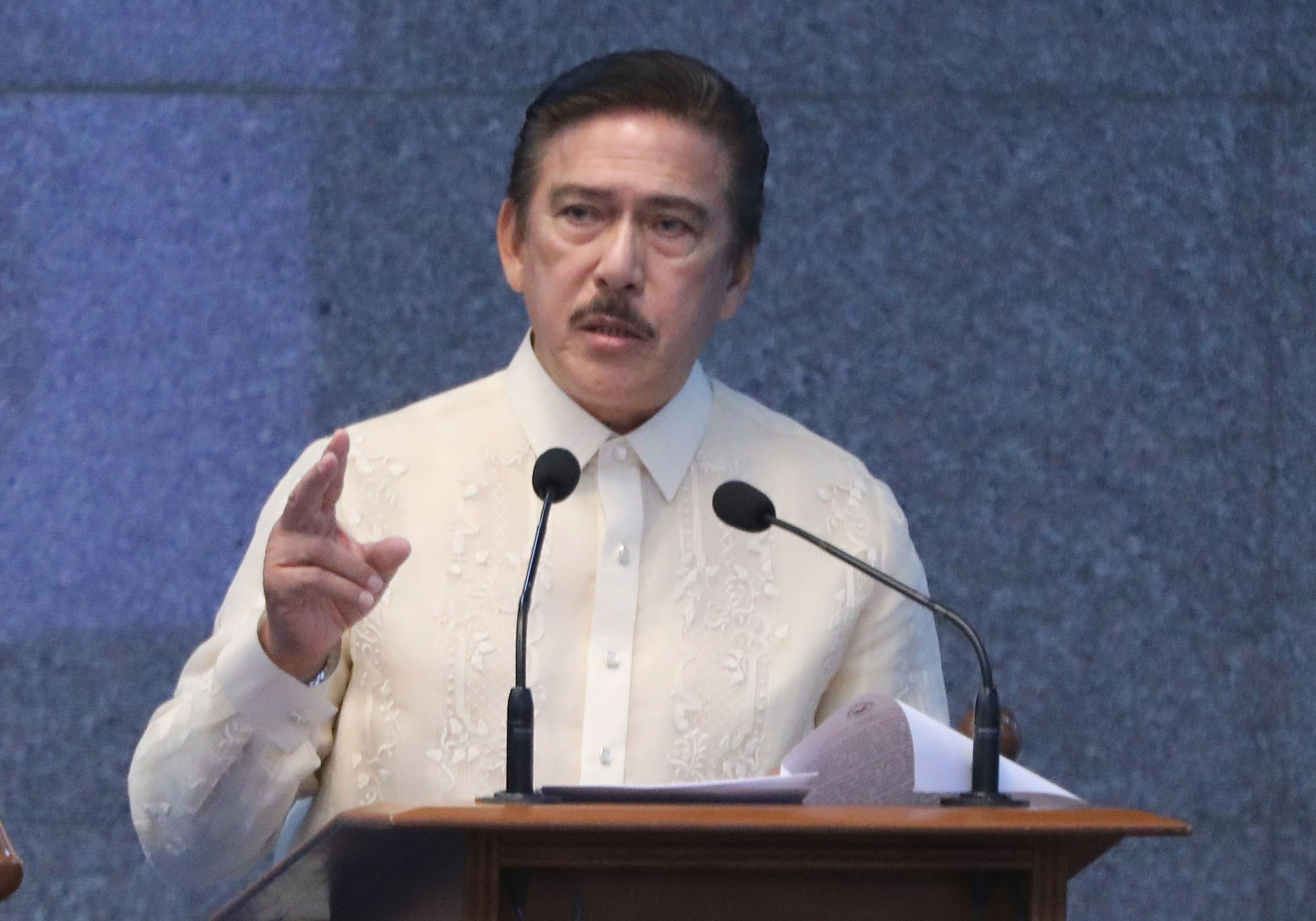
MANILA – Senate President Vicente Sotto III on Thursday agreed to present his “source” on the alleged irregularities in the 2016 national elections in the next hearing of the Joint Congressional Oversight Committee on the Automated Election System (JCOC-AES).
This after statements of the Commission on Elections (Comelec) and automated election provider Smartmatic once again drew more questions rather than answers, Sotto said.
In two privilege speeches in March, Sotto bared that a “concerned and impeccably reliable source” handed him confidential information regarding the irregularities that have transpired in May 2016, which allegedly “altered” the results of the national elections.
There were three main issues — the alleged early transmission of votes; foreign access to the election servers; and the presence of unauthorized queue servers.
The JCOC-AES and the Senate Committee on Electoral Reforms and People’s Participation have already conducted earlier inquiries on the matter but failed to get clear-cut answers from Comelec and Smartmatic.
During Thursday’s hearing, Sotto brought out anew the issue on unauthorized queue servers.
Comelec executive director Jose Tolentino Jr. denied that there were queuing servers used during the counting of the ballots, saying the issue of queue servers “is just probably the conclusion made by some IT experts.”
“I am telling you directly now, an employee from Smartmatic gave me, not Marlon Garcia, it’s another one and I won’t reveal his name.Kaya hindi pupwedeng sabihin nyo sa akin na akala o suspetsa lang ng iba (So you cannot tell me that it is just an assumption or merely a notion of others),” Sotto said.
Marlon Garcia is the head of the technical support team of Smartmatic during the 2016 elections.
“Taga-loob ang nagsabi sa akin. Magpi-privilege speech ba ako ng 2-3 beses kung hindi ako sigurado sa bala kong hawak? (My source is an insider. Would I deliver my privilege speeches if I am not certain of my ammunitions?) Mr. Chair, I cannot be satisfied with the answers,” Sotto said.
This prompted Senator Aquilino Pimentel III, co-chair of the JCOC-AES, to call for a minute recess to confer briefly with Sotto. CIBAC Party-list Rep. Sherwin Tugna is the co-chair of the panel on the part of the House of Representatives.
Upon resumption of the hearing, Pimentel asked the Comelec officials if they are sticking to their version of the issues, which was contained in a written response on the allegations to the JCOC-AES.
“In gist, your answer basically says that the concept of the queuing server may have been confused with the complex technical infrastructure of the telecommunication systems of the telcos,” he said.
To which Tolentino answered, “Yes.”
“In the next hearing, we will just have to produce the witness of the Senate President so that we can confront allegations, under oath, with the answers of the Comelec. So that we will not be debating this issue to death,” Pimentel said.
In his March speech, Sotto said documents in his possession showed that transmission activities started as early as the morning of May 8, 2016 and continued until 9 a.m. of the following day prior to the official conduct of the elections.
Relative to the allegations of early transmissions, he said his source also alleged that there was foreign access into the election servers before, during and after the election.
He pointed to a statement issued by Comelec spokesman James Jimenez who said in an interview “election results website is being hosted by Amazon Web Service even during the 2010 and 2013 elections.”
Sotto added that there were proofs presented that suddenly on May 10 to 11, 2016, the transmission of the Vote Counting Machines (VCMs) did not go directly to the Consolidated Canvassing System (CCS).
The transmission of the VCMs suddenly went through a queuing server before reaching the CCS.
In his privilege speech, Sotto said it was the presence of the unauthorized queuing servers that “really tainted the outcome of the elections.”
Comelec and Smartmatic have denied the allegations.